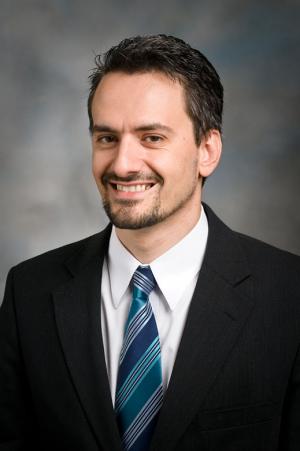Event Date:
Event Location:
- Broida 1640
Title: Bayesian Approaches to Dynamic Model Selection
Abstract:
In many applications, investigators monitor processes that vary in space and time, with the goal of identifying temporally persistent and spatially localized departures from a baseline or ``normal" behavior. In this talk, I will first discuss a principled Bayesian approach for estimating time-varying functional connectivity networks from brain fMRI data. Dynamic functional connectivity, i.e., the study of how interactions among brain regions change dynamically over the course of an fMRI experiment, has recently received wide interest in the neuroimaging literature. Our method utilizes a hidden Markov model for classification of latent neurological states, achieving an estimation of the connectivity networks in an integrated framework that borrows strength over the entire time course of the experiment. Furthermore, we assume that the graph structures, which define the connectivity states at each time point, are related within a super-graph, to encourage the selection of the same edges among related graphs. Then, I will propose a Bayesian nonparametric model selection approach with an application to the monitoring of pneumonia and influenza (P&I) mortality, to detect influenza outbreaks in the continental United States. More specifically, we introduce a zero-inflated conditionally identically distributed species sampling prior which allows borrowing information across time and to assign data to clusters associated to either a null or an alternate process. Spatial dependences are accounted for by means of a Markov random field prior, which allows informing the selection based on inferences conducted at nearby locations. We show how the proposed modeling framework performs in an application to the P&I mortality data and in a simulation study and compare with common threshold methods for detecting outbreaks over time, with more recent Markov switching based models, and with other Bayesian nonparametric priors that do not take into account spatio-temporal dependence.
Bio:
I am currently a member of the American Statistical Association (ASA) , the Institute of Mathematical Statistics (IMS), and the International Society for Bayesian Analysis (ISBA).

